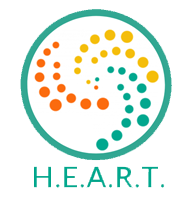What is Collegiate Recovery
Good question! Chances are, if you’ve landed here, you’re going to find out much more about Collegiate Recovery, and what it can do for you, or your peers.
Collegiate Recovery, and subsequently Collegiate Recovery Programmes (CRPs), are practically brand new to the United Kingdom.
That said, over in the United States, they’ve been firmly at the heart of many universities, and thousands of students, for close to 50 years.
Pioneered at Brown University, by Dr Bruce Elliott in 1977, the CRP movement in the US now has a distinct presence in around 150 universities across the country. And the number continues to grow, with new universities being added to www.collegiaterecovery.org every academic year.
But here in the UK, at the time of writing there are just two. One, at Teesside University, launched by Recovery Connections in 2019. And the other, piloted during the summer of 2021, by HEART Ambassador, Dr Ed Day, at the University of Birmingham.
However, as we move into the 21/22 academic year, it is believed that more higher education institutions are looking at the concept of Collegiate Recovery, and how it can become a beneficial, on campus programme for every stage of student life.
Ultimately, Collegiate Recovery Programmes are here to support students’ recovery - while still surrounded by the social world of student life. All support is peer-led, with students accessing drop-in services, joining peer-support meetings, and even organising social activities that embrace abstinence. Students are able to learn about and engage with recovery, while continuing regular study and, crucially, not seeing their achievements compromised due to problematic substance use.
Where HEART fits neatly, and appealingly into this new part of university life, is to provide students with online peer support, and share experiences - hopefully alongside a growing number of peer-led, collegiate recovery programme activities.
We’re looking forward to providing you with a platform where you can talk with, learn from, and support others throughout your academic life, while you reach out and grasp both your life and recovery goals.
